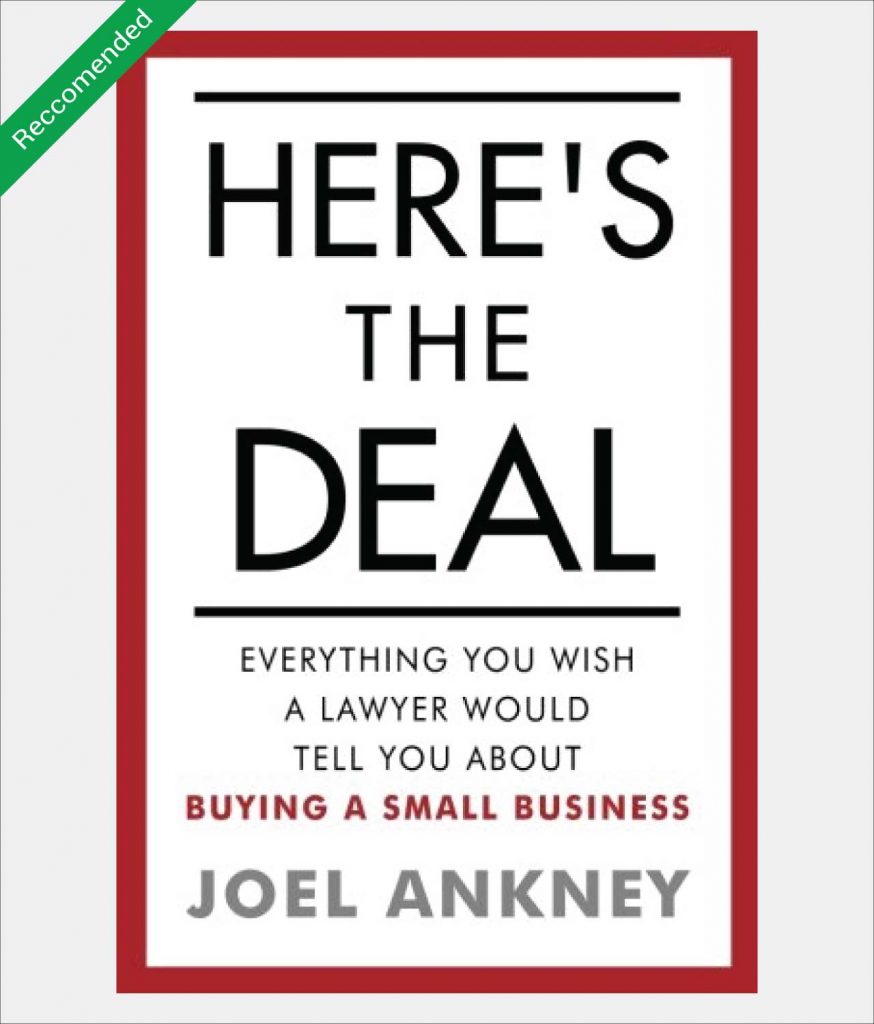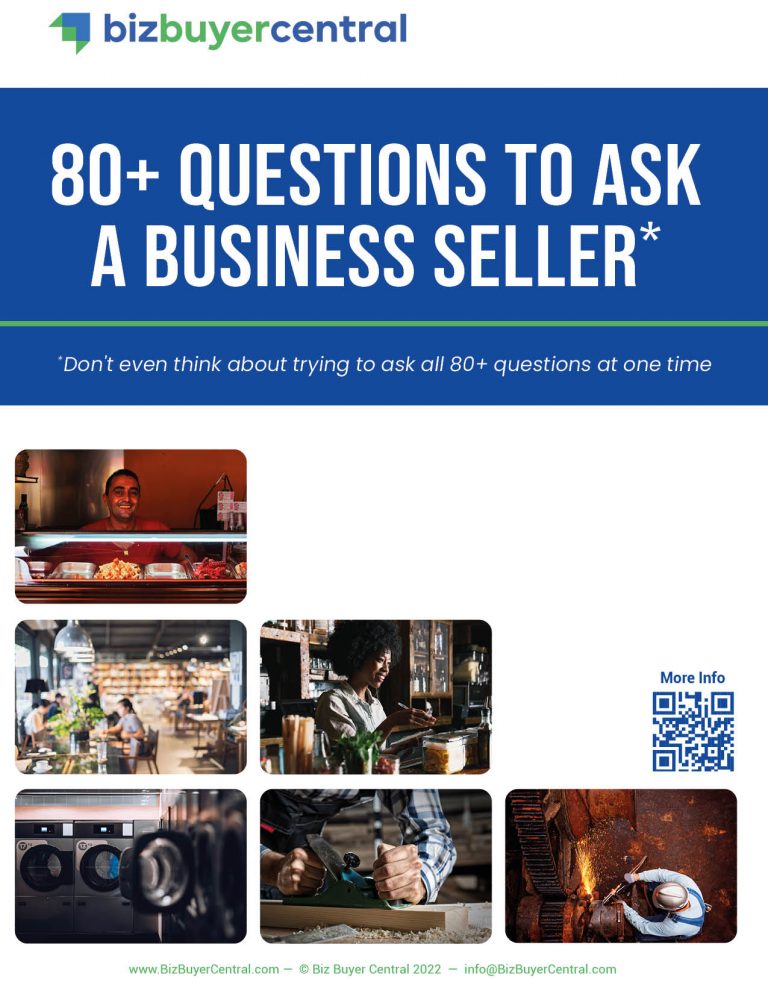This is one of my favorite, and most important topics to talk about when buying a business: Asset vs. Stock purchase. My personal opinion is that I would only purchase a company as an Asset sale. There could be some limited situations in which I would consider a stock sale but generally, I would not do it.
There is one BIG reason I would not do a stock sale transaction ad it has to do with risk. We will explain what an asset sale and stock sale are and how you should think about them.
What does Asset or Stock purchase mean?
When looking to buy a business, there are two common ways to do so – an asset purchase and a stock purchase. While both options have their advantages and disadvantages, it is important to understand the key differences between them so you can choose the best option for you and the business you are looking to buy.
An Asset Purchase
An asset purchase involves acquiring specific assets of a business, such as the name, property, equipment, inventory, customer lists, and intellectual property while leaving all liabilities with the seller. This means that the buyer is not acquiring ownership of the company itself, but instead acquiring the assets that make up the company.
Now that may sound weird – how can I buy a company without actually buying the company? You are buying everything that the company has, but you will incorporate your own company and begin operating the purchased business with that new company. The name of the business can remain the same, it is just incorporated in a new corporate name.
Here are the Pros of an asset sale:
- Limits your liability: This is the most important reason to do an Asset purchase. Since the buyer is not acquiring ownership of the company, they are also not acquiring any of the liabilities associated with the business.
This means that they are not responsible for any debts or obligations that the seller may have. This could include unpaid taxes, environmental problems, or employee issues. - Choose the assets: The buyer has the ability to choose which assets they want to purchase, allowing them to only acquire the assets they need to run their business. For example, you may/may not want to purchase the business real estate
- Easier to value: Assets can be individually valued, making it easier to determine the overall value of the purchase.
- Tax benefits: An asset purchase can provide tax benefits for the buyer as they can depreciate the assets over time. This is a somewhat complicated topic, you will want to discuss this with an accounting professional.
And now for the Cons of an asset sale:
- No access to company history: Since the buyer is not acquiring ownership of the company, they do not have access to the company’s historical financials. This could become an issue if you want to get a bank loan down the road. The company’s history starts the day you acquire the business assets no matter how long the company existed before you bought it.
- Potential legal issues: The buyer must be careful when acquiring assets because there may be legal issues associated with the transfer of ownership of specific assets. If an asset was pledged to secure a bank loan, this could become a problem. Cousin Earl could have loaned a truck to the existing owner and you think you are getting that as one of the assets but then after the sale Earl demands his truck back.
A Stock Purchase
A stock purchase means you acquire ownership of a company by purchasing the stock or shares of the company from the existing owners(s). This means that the buyer is acquiring ownership of the existing incorporated company itself and all of the assets and liabilities associated with it.
With a stock sale, you have to purchase the company shares from each and every shareholder in the company. Most times it will only be one or two people, but it could also be several people who own shares. They will all have to agree when you are buying 100% of the company.
The Pros of a stock sale:
- Simplicity: A stock purchase is typically simpler than an asset purchase because the buyer is only acquiring ownership of the company and not individual assets.
- Access to company history: The buyer has access to the company’s historical financials, making it easier to determine the overall value of the business. If the company has been operating for 20 years, you will be able to use that history for loans, experience in the industry, and other ways.
- Easier transfer of ownership: Since the buyer is acquiring ownership of the company, the transfer of ownership is typically easier and quicker.
The Cons of a stock sale:
- No control over assets: The buyer does not have control over which assets they are acquiring, as they are acquiring all of the assets and liabilities associated with the business.
- Liabilities: The buyer is acquiring all of the liabilities associated with the business, which can include debts and obligations that the seller may have BUT FAILED TO TELL YOU ABOUT.
- Potential legal issues: The buyer must be careful when acquiring stock as there may be legal issues associated with the transfer of ownership of the company.
- Tax Issues: Unless you are a CPA or some kind of genius, there may be some difficult-to-understand tax issues that come with buying the stock of a company. Always seek the help of an accounting professional.
A real-world example of a stock sale problem
Let’s say for example that you are buying dry cleaners. You are getting a great deal, business is booming, and you love the business. The seller insists on doing a stock deal and despite everything we warned you about in this article, you agree to a stock deal and buy the company.
Two years after you buy the company the federal Environmental Protection Agency knocks on your door and wants to have a word with you. When a three-letter federal agency wants to talk, nothing good is going to come of that.
The EPA tells you that there is groundwater contamination and it came from your dry cleaners and they are going to sue you to pay for the cleanup costs of $500,000. Of course, you say you have never spilled chemicals and it must have happened before you bought the company. This is when you find out that even though it happened before you bought the company, you as the new owner of that company are liable for the cleanup cost.
Now you can go to court with the previous owner and try to get them to share in the cost, but that will take years and a small fortune in legal fees. While this is happening, your friendly EPA is also charging you fines and taking your firstborn child for not cleaning up the mess.
What a nightmare.
Go deeper on the legal stuff
Our go-to book for issues dealing with legal issues involving buying a business is “Here’s The Deal: Everything You Wish a Lawyer Would Tell You About Buying a Small Business“. This is written by a business lawyer who has worked for over 25 years with hundreds of people who are buying or selling businesses. This book is worth every penny and you will come back to it often when you need to learn something.
Click on the cover to learn more:
Final thoughts on Asset vs. Stock purchases
We at Biz Buyer Central could be crazy and not know anything, but we are pretty certain about this. Always try and structure your business purchase as an asset sale. Trust us, it will make your life so much easier.
We are not saying sellers who want to do a stock sale are scammers or dishonest. They make have very legitimate reasons for wanting to structure the deal that way. We are just saying, that may not be best for you.
This is one of those situations in which you will want to work with a professional accountant and/or lawyer.
Now go out there and change your world!









